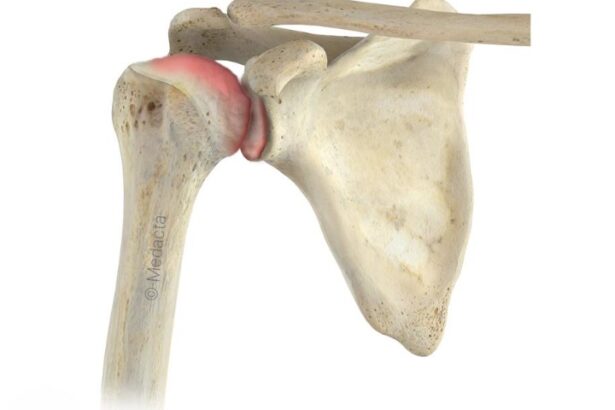
Frozen shoulder, also called adhesive capsulitis, is a painful condition in which your shoulder movement becomes restricted, making it difficult or even impossible for your arm to move. It typically develops slowly over time and can be divided into three stages: freezing, frozen, and thawing. The freezing stage is characterised by increasing pain and stiffness in the shoulder joint and the shoulder may become so stiff that it’s difficult to move it at all. In the frozen stage, the pain may subside somewhat, but the shoulder remains stiff, and movement is severely restricted with simple daily activities, such as dressing or reaching for an object, become difficult. The thawing stage is the final stage and involves a gradual improvement in shoulder mobility and a decrease in pain however the recovery period can take several months to a year.
It most commonly affects people between the ages of 40 and 60 and occurs in women more often than men. Certain medical conditions can increase your risk of getting a frozen shoulder too.
The exact cause of a frozen shoulder is not fully understood, but certain risk factors, such as diabetes, thyroid disorders, and previous shoulder injuries or surgeries, may increase the likelihood of developing the condition.
Symptoms of a frozen shoulder
If you have frozen shoulder, you’ll likely feel a dull or achy pain in your shoulder. You might also feel pain in the shoulder muscles that wrap around the top of your arm or in your upper arm. Your pain could get worse at night, which can make it hard to sleep.
Treating a frozen shoulder
Treatment for frozen shoulder usually involves a combination of physical therapy, pain management, and medication. Physical therapy exercises can help improve shoulder mobility and strength. Pain management may involve the use of non-steroidal anti-inflammatory drugs (NSAIDs), corticosteroid injections, or other pain medications.
In severe cases, surgery may be necessary to loosen the shoulder joint capsule and improve mobility. These treatment options can all be discussed in your consultation with Dr Singh as, many conditions can cause shoulder pain and/or injury so, a correct diagnosis in consultation with Dr Singh is critical in determining the best treatment option for you.
 Christmas Operating Hours
Christmas Operating Hours 



















